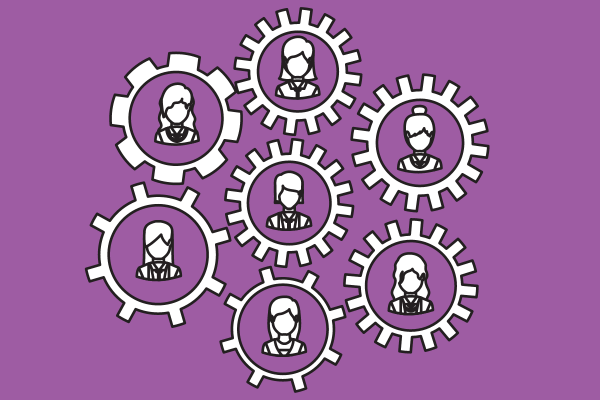
Different Personality Types in the Workplace
Embarking on a professional journey exposes individuals to an array of people and personalities. Navigating this can be challenging, especially when dealing with conflicting personalities. However, effectively managing such situations is a crucial skill for success in any profession.
Collisions between personalities or difficult interactions within a work environment can significantly impact both personal and professional performance. Business leaders understand the importance of striking a balance among different personalities. Successful teams often comprise individuals with diverse characters. Rather than avoiding those with distinct personalities, cultivating and embracing such differences becomes an essential skill for professionals.
A strategic understanding and appreciation of various personality types enable businesses to assign individuals to roles that play to their strengths. Selecting a mix of characters that complement the organisational culture is instrumental in achieving long-term goals.
At MorePeople, we leverage Clarity4D profiles for team building and client interactions, enhancing efficiency and sales performance. Based on effective psychological research, particularly drawing from Carl Jung's work, the Clarity4D approach aids personal and team development, from selection to appraisals and cross-departmental communication. This proactive approach mitigates the costs associated with high staff turnover, missed deadlines, and communication errors.
The following highlights some typical personality types identified by Clarity4D and other research:
The Overthinker
Encountering overthinkers is common in the food and agriculture industry. These individuals meticulously analyse information or tasks, making them valuable for in-depth investigations. While their thoroughness might seem time-consuming in fast-paced scenarios, their attention to detail proves beneficial for comprehensive examinations.
In Control
Controllers, often in senior positions, thrive on maintaining order. Despite the challenges of working with those who seek control, they contribute significantly to situations requiring organisation, structure, and discipline. Their conscientious nature, excellent time management skills, and attention to detail make them well-prepared leaders.
Competitive
Healthy competition drives business, but overly competitive personalities can turn trivial matters into stressful battles. Professionals with strong competitive traits should prioritize tasks that genuinely benefit from a competitive approach and learn to let go of minor issues.
Energetic Workers
Individuals with abundant energy contribute positively to office dynamics. Their enthusiasm proves beneficial in action-oriented situations, enhancing team morale and fostering a vibrant office atmosphere. Energetic workers are often unafraid to share ideas, a quality valuable for innovation.
The Introvert
Introverts, often misunderstood as shy or anxious, express emotions differently. They internalise their thoughts and excel when working independently. While they may need encouragement to share ideas with a broader audience, their good listening skills and simplicity-oriented approach make them valuable contributors.
The Extrovert
In contrast, extroverts outwardly express emotions, appearing confident and open-minded. Their willingness to learn, curiosity, and creativity contribute to a dynamic business environment. However, managing their enthusiasm may be necessary in specific situations requiring discipline. Understanding these diverse personalities is crucial for effective communication.
Judy Oliver, director of Clarity 4D, commented: “Having some understanding of the core personalities that people exhibit is important, as it underlines how individuals like to be spoken to or dealt with. In this fast-moving world, those individuals and companies who can recognise the different communication preferences of co-workers and customers will be able to respond in the right way and gain a competitive edge.
Our profiles provide a powerful and enlightening personal learning experience because they are centred on easy-to-recall elements around colour, and the 4 core elements of fire, air, earth and water that people recognise, remember and then actually apply those principles in their day-to-day interactions with others.”
If you’re interested in exploring different personality types or want to know more about the Clarity4D profiles, please feel free to email us at info@morepeople.co.uk or call 01780 480530 and have a chat with one of our recruitment specialists.
